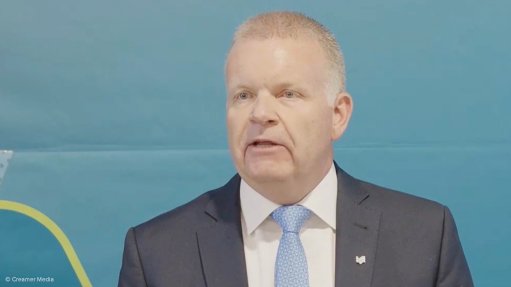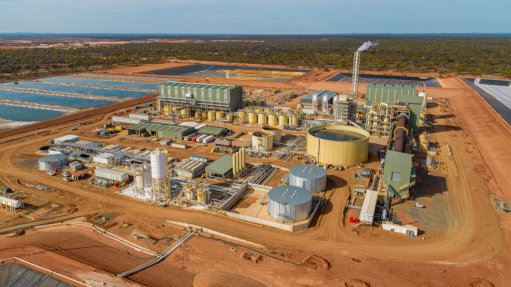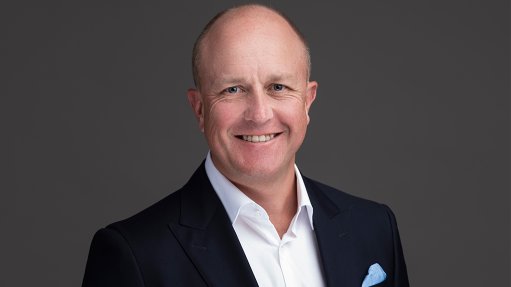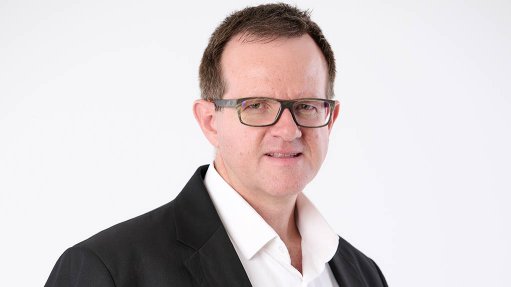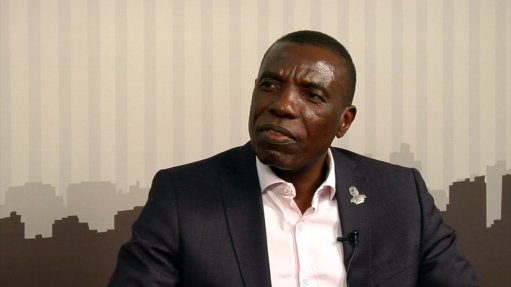Mining urged to embrace international council’s new Scope 3 emissions guidance


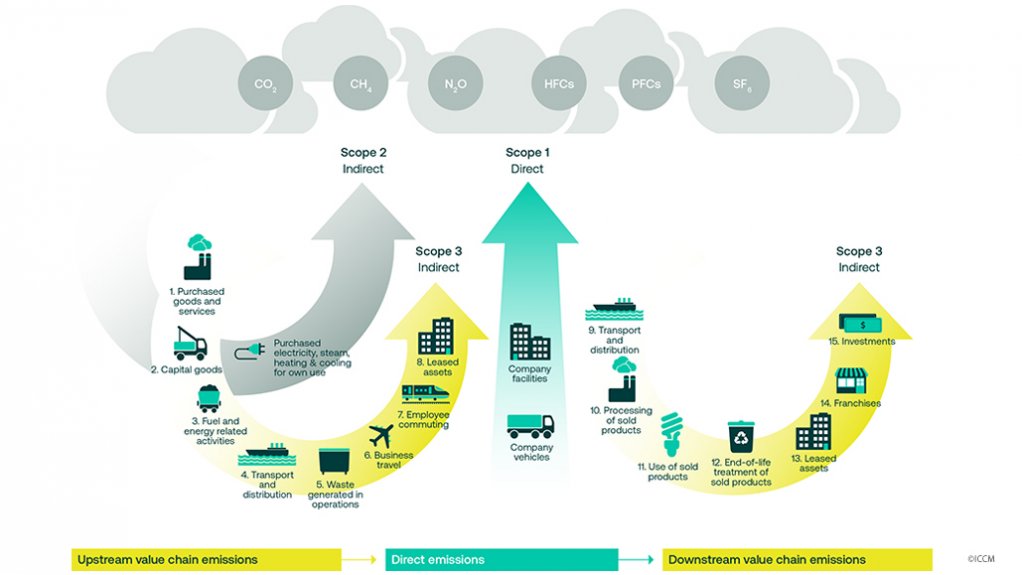
ICMM CEO Rohitesh Dhawan.
Scope 3 representx up to 95% of emissions for some commodities.
JOHANNESBURG (miningweekly.com) – All mining and metals companies are being urged to embrace new guidance on reducing Scope 3 emissions, which was published by the International Council for Mining and Metals (ICMM) on Wednesday.
The guidance is a tool to assist mining companies in their engagement with the financial sector, investors, regulators, suppliers, customers and other mining sector stakeholders on Scope 3 emissions, which are a critical area of concentration for the mining and metals industry as they represent up to 95% of a company’s total emissions for some commodities.
The guidance helps companies to set short-, medium- and long-term targets for reducing their Scope 3 emissions, which occur in a company’s value chain from the upstream manufacturing of products purchased from suppliers and those produced downstream by customers repurposing that company’s materials.
Emphasised is the importance of transparency and engagement with suppliers, customers, investors and regulators in setting targets, to help accelerate emissions reduction throughout the value chain.
Target-setting principles tailored to the specific considerations of the mining and metals sector are drawn from European, American, British, Canadian and Australian regulatory frameworks, as well from the United Nations’ high level expert group on net zero emissions commitments of non-State entities.
Acknowledging the differences in commodities and value chains, the guidance provides mining and metals-specific context around commonly used approaches rather than endorsing a specific methodology.
A framework is provided for companies to enhance their targets as their capabilities mature over time.
Set out is leading practice across accounting and reporting, emissions ‘hotspot’ identification, business integration, decarbonisation pathway assessment, and organisational governance.
“As the discussions at COP28 have made clear, each sector bears the responsibility to understand its part in the broader system and extend beyond immediate boundaries to unearth solutions to stubborn sources of emissions,” ICMM CEO Rohitesh Dhawan stated in a release to Mining Weekly.
As the base products in almost every industry – from renewable energy and sustainable transport, to construction and tech – metals and minerals are critical to meeting the goals of the Paris Agreement.
All mining and metals companies have been exhorted to set their own Scope 3 emissions reduction targets.
“At Antofagasta, our commitment to addressing climate change permeates every aspect of our strategy and decision-making,” Antofagasta CEO Iván Arriagada, who chairs ICMM and is a member of the council’s climate change advisory group.
Arriagada described the guidance as an important step in catalysing collaborative emissions-curbing efforts across the industry.
“Tackling Scope 3 emissions requires a distinct approach from operational emissions directly or indirectly generated at sites. Setting targets within mining and metal value chains is a complex process, demanding a shift from direct emissions management to collaborative and integrated engagement. This involves building strong relationships with suppliers and customers, even within intricate supply chains.”
In 2021, ICMM members committed to achieve net zero Scope 1 and 2 greenhouse gas emissions by 2050 or sooner, in line with the Paris Agreement.
They also committed to report on Scope 3 emissions and set reduction targets by end-2023 or as soon as possible.
Significant progress has been made towards these commitments, and members remain focused on meeting their short- and medium-term milestones.
This new target-setting guidance builds on the Scope 3 emissions accounting and reporting guidance published by ICMM in September, and has been underscored by the pledging last month of South Africa’s Johannesburg-listed Gold Fields to reduce its Scope 3 carbon emissions by a net 10% by 2030 off a 2022 baseline target.
The global transition to net zero requires significant deployment of clean energy technologies, which Gold Fields has been quick off the mark to provide.
The gold mining company has commissioned 50 MW of solar power at its South Deep gold mine, west of Johannesburg, where, in addition, it is now also looking to commission 60 MW to 80 MW of wind power.
To arrive at its latest advance, 18 months were spent working with the key suppliers to Gold Fields' mines to arrive at total 2022 Scope 3 emissions being 980 000 t of carbon dioxide equivalent (CO2e), which represents 36% of its total 2022 outpouring of 2 696 000 t CO2e.
The current 10% reduction target means that the company has to cut 100 000 t CO2e from its 2022 Scope 3 emission baseline of 980 000 t CO2e by 2030. As measured by emissions intensity, this will require a reduction from 346 000 g CO2e/oz in 2022 to 314 000 g CO2e/oz by 2030.
In contrast, Gold Fields' Scope 1 and 2 reduction commitments are against a 2016 baseline, when the company launched its climate change strategy, and require a net reduction of 510 000 t CO2e by 2030.
On a per-ounce basis, the reduction will be from 788 000 g CO2e/oz in 2016 to 423 000 g CO2e/oz.
Given the higher production levels expected by 2030, the absolute reduction cuts of Gold Fields could be significantly higher.
Article Enquiry
Email Article
Save Article
Feedback
To advertise email advertising@creamermedia.co.za or click here
Announcements
What's On
Subscribe to improve your user experience...
Option 1 (equivalent of R125 a month):
Receive a weekly copy of Creamer Media's Engineering News & Mining Weekly magazine
(print copy for those in South Africa and e-magazine for those outside of South Africa)
Receive daily email newsletters
Access to full search results
Access archive of magazine back copies
Access to Projects in Progress
Access to ONE Research Report of your choice in PDF format
Option 2 (equivalent of R375 a month):
All benefits from Option 1
PLUS
Access to Creamer Media's Research Channel Africa for ALL Research Reports, in PDF format, on various industrial and mining sectors
including Electricity; Water; Energy Transition; Hydrogen; Roads, Rail and Ports; Coal; Gold; Platinum; Battery Metals; etc.
Already a subscriber?
Forgotten your password?
Receive weekly copy of Creamer Media's Engineering News & Mining Weekly magazine (print copy for those in South Africa and e-magazine for those outside of South Africa)
➕
Recieve daily email newsletters
➕
Access to full search results
➕
Access archive of magazine back copies
➕
Access to Projects in Progress
➕
Access to ONE Research Report of your choice in PDF format
RESEARCH CHANNEL AFRICA
R4500 (equivalent of R375 a month)
SUBSCRIBEAll benefits from Option 1
➕
Access to Creamer Media's Research Channel Africa for ALL Research Reports on various industrial and mining sectors, in PDF format, including on:
Electricity
➕
Water
➕
Energy Transition
➕
Hydrogen
➕
Roads, Rail and Ports
➕
Coal
➕
Gold
➕
Platinum
➕
Battery Metals
➕
etc.
Receive all benefits from Option 1 or Option 2 delivered to numerous people at your company
➕
Multiple User names and Passwords for simultaneous log-ins
➕
Intranet integration access to all in your organisation










